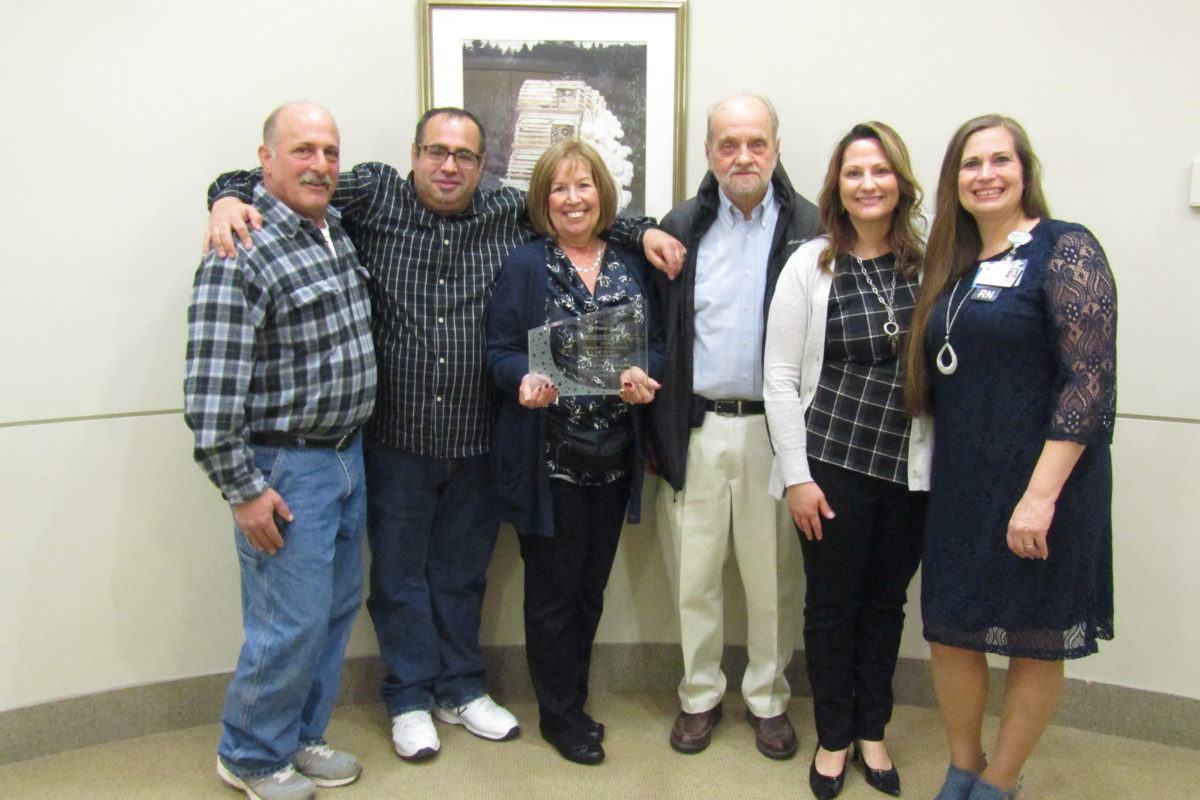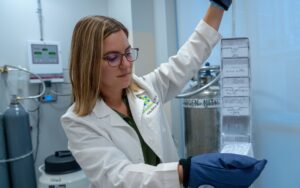In 2008, Lisa Gilroy began feeling pain in her chest with each breath. The initial diagnosis was acid reflux. The pain persisted and an X-ray revealed a softball-sized mass behind her breast bone.
Gilroy, then 32, had stage IV diffuse large B-cell non-Hodgkin lymphoma. “It was all over my body — my bones, liver and spleen,” Gilroy said.
At Christiana Care’s Helen F. Graham Cancer Center & Research Institute, Gilroy participated in a clinical trial comparing the standard therapy to a research regimen that included the standard therapy coupled with investigational treatment.
Clinical trials are research studies to evaluate whether a new treatment or procedure is better than the current standard of care.
Gilroy responded so well to the investigational treatment that she needed only six treatment rounds instead of the planned eight. She is now cancer-free.
In large part because of knowledge gained through clinical trials, 69% of cancer patients today survive at least five years after diagnosis, compared with 49% in 1975.
Seeking to support other clinical trial participants, Gilroy became a founding member of Oncology Patient Advocates for Clinical Trials (OPACT) program at Christiana Care, comprised of past and present participants in research studies.
OPACT received the Community Service Award at the Graham Cancer Center’s Oncology Research Awards ceremony in March.

“Over the last 40 years, progress in cancer care and prevention has been the result of clinical trials,” said Nicholas J. Petrelli, M.D., FACS, the Bank of America Endowed Medical Director of the Helen F. Graham Cancer Center and Research Institute. “There is no question in my mind that a major reason for the rapid drop in cancer mortality in Delaware — declining twice as fast as the national rate — is because of clinical trials.”
Christiana Care is a leader in cancer research, with significant support from OPACT. Founded in 2011, OPACT educates patients about the importance of clinical trials and supports participants along their journey.
OPACT offers the patient’s perspective to students and clinicians in clinical trial classes. The volunteers also offer input to researchers on the best way to present a study to prospective patients. When patients understand the purpose of a study, they’re more likely to participate, said Gilroy.
A top accruing member of the National Clinical Trials Network, Christiana Care’s Cancer Research Program has a 28.4% accrual rate compared to the national average of 3% to 5%.
“OPACT has a positive impact on recruitment of participants to our clinical trials through their community education efforts,” said Cancer Research Manager Marta Hayden, MSN, RN, OCN, a liaison to OPACT.
The Graham Cancer Center currently has more than 80 ongoing clinical trials in different cancer types, including breast, central nervous system/brain, gastrointestinal, genitourinary, gynecologic, head & neck, hematologic, melanoma, thoracic and others.
“I’m so proud to be a part of OPACT,” Gilroy said, “and so pleased that the medical community has recognized our contributions.”



